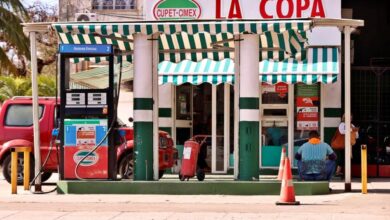Would Nicaragua become another Venezuela?
Nicaragua and Venezuela face a social outbreak due to the illegitimate presidents who govern them, placing them in the eye of the OAS
Since April, Nicaraguans have declared themselves in civil disobedience against President Daniel Ortega's Social Security reform. The social and political crisis in Venezuela and Nicaragua puts them on the table at the General Assembly of the Organization of American States (OAS), which declared its support for the people of Nicaragua and initiated a process that, if approved, would suspend the participation of Venezuela within the organization.
Leer en español: ¿Puede Nicaragua convertirse en otra Venezuela?
Both in Nicaragua and in Venezuela the people have rejected the rulers, whom they label as totalitarian and illegitimate. Although the Government of Maduro and that of Daniel Ortega have produced an almost identical social outbreak, they differ in political and economic model, international relations, among other things. To assess whether it is possible or not for Nicaragua to end up as Venezuela, the following are the most important similarities and differences between the situation faced by the two countries.
Similarities
-
Violent protests
The protests in Venezuela and Nicaragua are practically identical, from the stalemate in the streets to the rising police repression. In both cases, the protesters were mostly young, then the working class and retirees joined. The presence in social networks also played a large part in both protests with the hashtags #SOSVenezuela and #SOSNicaragua. The report in these alternative media occurs because in both countries the news is highly restricted and dominated by the government. During the protests of both Venezuela and Nicaragua, groups of armed civilians were reported in favor of the government. Until today, 127 victims have been officially reported in the Nicaraguan protests, surpassing the 112 people killed during the protests in Venezuela in a similar period.
-
Electoral fraud
Maduro's government and Daniel Ortega's government have been accused of being illegitimate due to the lack of transparency in the electoral processes. Pedro Brieger, director of the news portal NODAL (Noticias de América Latina y el Caribe, by its acronym in Spanish), said about Daniel Ortega that the electoral processes in Nicaragua have been "plagued with illegalities" since 2007. "In 2011, Ortega presented himself again to the presidency despite the fact that the Constitution prohibited it in a very clear way because the continuous reelection was banned, and he also practiced a flagrant fraud in order to control the National Assembly," Brieger explained.
He also recalls that in 2016 Ortega re-elected himself, appointed his wife Rosario Murillo vice-president and used "his control of the Supreme Electoral Council to eliminate administratively opposition parties. As a result, there was a huge abstention, which was the way for people to express their rejection of the process." This reminds the National Constituent Assembly of Maduro, which nullifies the legitimately elected National Assembly and which is mostly opposition. It also recalls the notable abstention of Venezuelans in the recent illegitimate re-election of Maduro, which the international community rejects. In addition to that, both governments were commissioned, in their own way, to disqualify the opposition parties.
Differences
-
Presence of opposition
The protesters do not seem to have a political affinity with Ortega's competition but appear as opportunists who take advantage of the social outburst to campaign without majority support. The students and businessmen rebel against the Sandinista regime of Daniel Ortega without an organized political party. On the other hand, in Venezuela, despite the fact that the opposition is currently disarticulated, names such as that of Leopoldo López, Henrique Capriles, and María Corina Machado are representative of the opposition among the people who protest.
-
Economic situation
Although Nicaragua is the poorest country in Latin America, after Haiti, the economic management of Ortega has been positive for the region, which since 2011 presents an economic growth of at least 4.4% per year. Ortega is allied with the business sector, which, although they have been part of the protest against Social Security, is not interpreted as a total rupture of relations with the union. Ortega's model is one that is based on the public-private partnership, is capitalism dressed of left-wing. Unlike Maduro, which follows the Castro-communist guidelines, Ortega's government is a populist government that subsidizes the poor and gives away oil while its economy collapses.
Nicaragua does not have Venezuela's oil, exports raw materials such as coffee, gold, cotton, and meat, has little industrial investment and still remains stable at a slow pace. Venezuela, with all its natural wealth and oil reserves, suffers from the highest inflation in the world. Maduro shields himself by blaming an alleged economic war led by international agents, while the opposition attributes the economic crisis to the mismanagement of the government.
Nicaragua and Venezuela are countries called left-wing. Both are under a totalitarian regime that has rigged presidential elections, in addition to placing strategic people in organizations that should represent the country's democracy. Both governments have censored the media and repressed demonstrations in a violent way. Although the economic scenario in Nicaragua does not look as bad as in Venezuela, this should not excuse the violation of freedom and human rights of Nicaraguans.
Latin American Post | María de los Ángeles Rubio
Translated from "¿Puede Nicaragua convertirse en otra Venezuela?"






